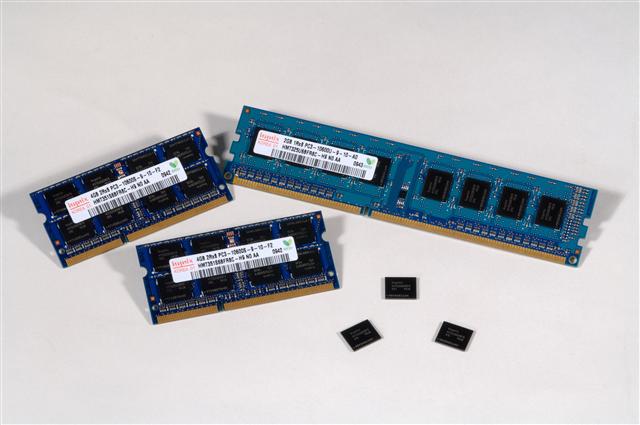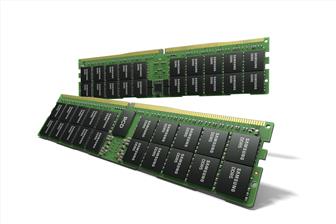
Hynix Semiconductor has announced the Intel validation of 2Gb (Gigabit) DDR3 DRAM using 40nm-class process technology. The newly validated products are 2Gb DDR3 SDRAM component, 4GB DDR3 SODIMM and 2GB DDR3 UDIMM at the operating speed of 1333MHz with 1.5V power supply.
The products can offer the maximum data transfer speed of 1867MHz with 16-bit I/O and 3.7GB/s bandwidth. The productivity of Hynix's 40nm class 2Gb DDR3 is increased by more than 60% over 50nm class process technology, according to the company.
Hynix has begun mass producing this new 2Gb DDR3 using 40nm class. The company also expects that the validation of RDIMM will be also completed within this year.

Samsung HKMG DDR5
Samsung Electronics has expanded its DDR5 DRAM memory portfolio with a 512GB DDR5 module...
Photo: Company

Nvidia GeForce RTX 30 series GPUs
Nvidia's GeForce RTX 30 series GPUs are powered by the company's Ampere architecture. The...
Photo: Company

Apple HomePod mini
Apple's HomePod mini is the newest addition to the HomePod family. At just 3.3 inches tall,...
Photo: Company

Apple 13-inch MacBook Pro with Magic Keyboard
Apple has updated the 13-inch MacBook Pro with the new Magic Keyboard for an improved typing...
Photo: Company

Apple iPad Pros
Apple's new iPad Pros comes with the latest A12Z Bionic chip, an ultra-wide camera, studio-quality...
Photo: Company
- Mature-node foundries face overcapacity from China (Jan 2) - EE Times
- Quobly forges strategic collaboration with STMicroelectronics (Dec 12) - Company release
- SemiKong, the first open-source semiconductor LLM, claims to bring new chips to market 30% faster (Dec 27) - TG Daily
- 2024: The year AI drove everyone crazy (Dec 26) - Ars Technica
- China becomes a contender in quantum computing (Dec 27) - EE Times
- NXP to acquire automotive networking pioneer Aviva Links (Dec 17) - Company release
- Luc Van den hove: Aim high, be ambitious, but stay humble (Dec 19) - EE Times
- Intel shortlists suitors for programmable chip arm Altera (Dec 20) - Bloomberg
![]() The Kumamoto model's potential: ex-MITI official urges Japan-Taiwan-US chip alliance
The Kumamoto model's potential: ex-MITI official urges Japan-Taiwan-US chip allianceJapan's semiconductor revival must not only involve Taiwan but also include strategic cooperation with...
![]() 2024 Review
2024 ReviewAs 2024 comes to a close, we look back at the major topics and events across multiple industry sectors, including EVs, AI, semiconductors, servers, and...

Global investment plans of Japanese IDMs
Geopolitical tensions prompt Japanese IDMs to gather capacities in Japan's Kyushu and Tohoku regions and prioritize their OSAT...

CSP in-house development of ASIC accelerators
Google TPUs will see a share of over 70% in the in-house developed cloud ASIC accelerator market in 2024; an all-optical network...

AI chip market outlook 2023-2028: Insights from demand and supply perspectives
The growing demand for AI computational power is accelerating advancements in hardware and chip technology, necessitating innovation...





